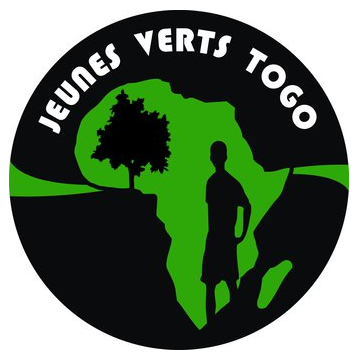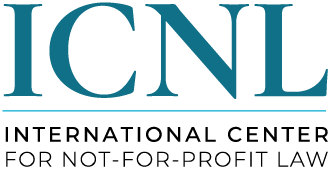As Senegal gears up for an election in early 2024, media freedom and the protection of other rights, including the right to protest, have been severely compromised. The country has witnessed a significant deterioration in its media landscape, and journalists have been attacked, naturally hindering their ability to perform their duties without fear. Reports indicate violations of the right to peaceful protest, with citizens being met with excessive force and arbitrary arrests during demonstrations. In addition, political parties are facing a blatant crackdown, and their supporters and members have been arrested and prosecuted across the country. These developments are extremely worrying, as they threaten the democratic process in Senegal and the fundamental rights of the Senegalese people.
The right to protest
The right to protest is a fundamental component of a democratic society. It allows citizens to express their grievances and demands, and it can bring attention to important social and political issues. Political parties also play a vital role in democracy, as they represent the diverse interests and views of the public. They provide a platform for citizens to engage with the political process and help to ensure that their voices are heard. Journalists, meanwhile, play a critical role in providing citizens with accurate and impartial information about events and issues affecting their lives. They help to hold those in power accountable and provide a necessary check on abuses of power. It is essential that journalists can operate freely without fear of reprisal or censorship. All of these factors are vital to the functioning of a healthy and vibrant democracy.
Reacting to this tense situation, ARTICLE 19 reiterated its call for de-escalation of violence and respect for fundamental rights, including the exercise of public freedoms and the protection of journalists.
‘ARTICLE 19 calls for de-escalation of violence and violations and concrete measures to protect journalists and their access to information without obstruction. We also call for the release of detained protesters. Public order will certainly be more effectively achieved through respect for the right to peacefully demonstrate, and the state’s protection of protesters, instead of using force and confrontation that reinforces a culture of violence. ARTICLE 19 remains ready to work with institutions and all relevant actors to reform Senegal’s regulations regarding the exercise of peaceful assembly and freedom of expression. This will help guarantee the conditions for a civic space that empower citizens to express their opinions in the public space without fear and to fully participate in democratic frameworks in accordance with international human rights standards and norms that Senegal has formally endorsed,’ said Alfred Bulakali, the Regional Director of ARTICLE 19 Senegal and West Africa.
Violent protests and arrests during opposition leader Ousmane Sonko’s trials
Opposition leader Ousmane Sonko has recently been tried for defamation. The trials, which took place on 16 and 30 March, sparked widespread protests in Senegal, which were met with force by the police, leading to the arrest of hundreds of protesters.
Sonko was convicted in absentia and sentenced to two months’ suspended imprisonment and a fine of two hundred million CFA francs (304,898 euros), exacerbating the tense situation across the country. In addition to the defamation charge, brought after a case was lodged by the minister for tourism, Mame Mbaye Niang, Sonko also faces trial for rape, for which no credible evidence has been put forward. Sonko’s supporters claim the charges are politically motivated.
On 16 March, Ousmane Sonko was on his way to the defamation trial when his procession was blocked due to a disagreement regarding the route. Tensions increased as police fired tear gas and protesters threw stones. Police officers forcibly removed Ousmane Sonko from his vehicle, and then punched and kicked him before ordering him into a police car to be taken to court. These events exacerbated an already tense situation. Unprecedented violence in several locations across the country followed, with reports of looting and destruction of public and private property.
Violence at the protests quickly escalated, with clashes between protesters and police, leading to injuries and arrests.
Some protesters set fire to government buildings and vehicles, and the government responded with a heavy-handed crackdown. According to both judicial sources and the media, since 16 March, hundreds of protesters have been arrested, including in Saint Louis, Ziguinchor and Dakar. Authorities provided a range of reasons to charge them, including participation in a prohibited gathering, causing damage or destruction to public and private property, and acts likely to compromise public safety. Other reliable data from the national opposition coalition Yewwi Askan Wi also indicate there have been widespread arrests and prosecutions of demonstrators. At least 100 young people are currently in custody at the central police station of Dakar. In other departments around the country, dozens of people have been arrested and referred to police stations, gendarmeries, and prisons.
Recent updates from the prosecutor of Ziguinchor highlighted that ‘since the 16 March demonstrations, 96 protesters have been referred to the prosecutor’s office. Of these, 64 have been placed in pre-trial detention, while 32 individuals, mainly minors and students, have been released on bail.’
Authorities must respect human rights in order to prevent further loss of life
On 20 March, clashes between law enforcement officials and protesters in the Bignona department resulted in the tragic death of 21-year-old Mamadou Korka, who was reportedly shot in the head. Two others lost their lives during demonstrations in Dakar on 16 March, including a deliveryman struck by a pickup truck and an agent of the mayor’s office of Medina, who was attacked with stones by demonstrators. Both individuals died on Friday, 17 March due to their injuries.
While law enforcement officials have a duty to maintain order and protect citizens, they must also respect the fundamental human rights of people, including the right to assembly and freedom of expression. It is essential that law enforcement officials prioritise the use of non-violent means before resorting to force, and only use such measures when less dangerous means are not practicable and to the minimum extent necessary, in line with international standards – specifically, the International Covenant on Civil and Political Rights (ICCPR) and the Basic Principles on the Use of Force and Firearms by Law Enforcement Officials highlight the importance of ensuring that the use of force is always necessary and proportionate.
‘Security forces must refrain from using force against any peaceful gathering. All protesters who were arrested for exercising their right to protest must be released without being subjected to any kind of violence,’ added Alfred Bulakali.
Attacks on and arrests of journalists
On 30 March, the situation escalated further when several journalists covering the protests were arrested and physically assaulted by police. Security forces fired tear gas at crowds in an attempt to break up a press conference planned by Yewwi Askan Wi, resulting in a woman journalist being injured after being hit by a vehicle during the chaos. Another journalist from Agence France Presse (AFP) was assaulted by security forces while covering a demonstration organised by the opposition. Authorities claimed the rally organisers had failed to secure the required authorisation. AFP condemned the attack and questioned whether Senegalese authorities had truly intended to guarantee a free press and the safety of journalists.
‘Journalists must be allowed to exercise their work freely and without danger, including when covering demonstrations or public events. Security forces must ensure the protection and safety of journalists at all times. They must refrain from using force against any peaceful gathering,’ added Alfred Nkuru Bulakali.
Targeting of opposition and political activists
According to recent reports, opposition leaders in Senegal have been targeted by the Sûreté Urbaine, a specialist unit dedicated to judicial investigations. The arrests took place in several locations, including Dakar, Kedougou, Kaolack, and Touba in the department of Mbacke. Many of those arrested were members of the political party PASTEF (Patriotes africains du Sénégal pour le travail, l’éthique et la fraternité), and hold cabinet positions within the party.
The charges brought against the opposition leaders have varied, with most of them facing judicial proceedings for their views on either the Sonko case, the possible candidacy of President Macky Sall for next year’s election, or on public governance. The offences for which they were prosecuted include disturbing the peace, spreading false news, undermining state security, and defamation.
For instance, on 26 March, Dr. Seydou Diallo, the departmental coordinator of Keur Massar and Pastef Yeumbeul Sud, was summoned by the Criminal Investigation Division. Meanwhile, El Malick Ndiaye, the communications officer for PASTEF, was summoned and prosecuted for allegedly sharing false news on 22 March. He was prosecuted after he posted a tweet that claimed an ‘individual dressed in a uniform of the brigade d’intervention polyvalente sprayed Ousmane Sonko with an unknown substance’. He was finally charged, on 27 March, with spreading false news of a nature to discredit institutions, and has since been provisionally released on condition that he wear an electronic tag.
Earlier in March, two political activists, Abdou Karim Gueye and Cheikh Oumar Diagne, were summoned to the Criminal Investigation Division and later placed in custody on charges of ‘calling for insurrection, calling for violence against institutions, and undermining state security’. Following their appearance before a judge on 23 March, they were placed under a warrant of committal for ‘undermining state security’. In addition, the mayor of Keur Massar Sud, Mouhamed Bilal Diatta, has also been placed under a detention order and sent to Rebeuss prison after being prosecuted for ‘calling for insurrection’ and causing ‘offence to the head of state’ after telling young people to engage in acts of resistance.
These arrests have raised concerns among opposition parties parliamentarian Guy Marius Sagna claims that there are currently over 113 political prisoners in Senegal. The targeting of political activists and the use of vague charges to justify their arrest and detention is a worrying development that threatens to undermine democratic values and freedoms in the country.
The recent events in Senegal have highlighted the need to protect the fundamental rights of citizens, including the right to protest, freedom of the press, and freedom of political expression. The targeting of journalists, opposition political activists, and protesters is a cause for concern, and the international community must stand in solidarity with the people of Senegal in their fight for democracy and human rights.
Given the deterioration of media freedom and protection of other rights, including the right to protest, the government of Senegal must take immediate action to ensure that the rights of its citizens are protected. Specifically, the government must:
Respect the right to protest: The government must respect the right of its citizens to peacefully assemble and express their views without fear of violence or intimidation. Any unnecessary use of force by the security forces should be immediately investigated and held accountable.
Protect journalists: The government must ensure that journalists are free to do their work without fear of harassment, violence, or arrest. Any attack on journalists or media houses should be thoroughly investigated and prosecuted.
Allow opposition parties to operate: The government should allow opposition parties to operate freely and participate in the political process without intimidation or harassment.
Stop harassment of and crackdown on opposition leaders and political activists and release all individuals who were arrested for exercising their fundamental right to right to freedom of expression.
Furthermore, we call upon the international community to closely monitor the situation in Senegal and to speak out in defence of human rights and democratic principles. The government of Senegal must understand that it will be held accountable for any violations of international law or human rights norms.
For more information, please contact:
Maateuw Mbaye, Program Assistant, ARTICLE 19 Senegal/West Africa Email:
Aissata Diallo Dieng, Office Manager, ARTICLE 19 Senegal/West Africa Email:



